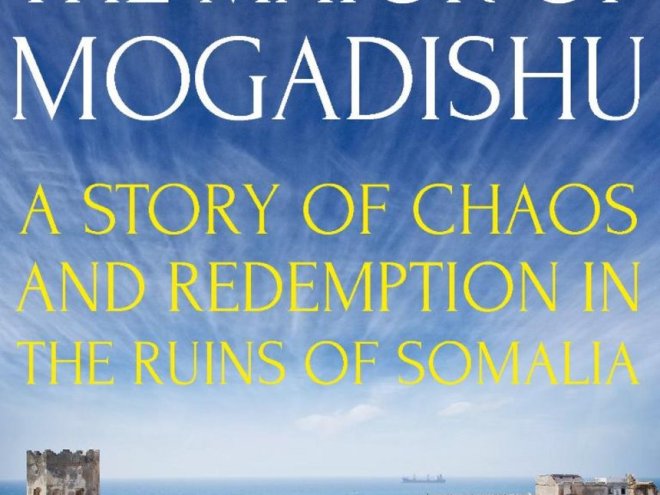
Saturday November 25, 2017

BBC foreign correspondent Andrew Harding has been reporting on Africa for years. The country that fascinated him the most was Somalia, and the man that intrigued him best was Mohamed ‘Tarzan’ Nur, the former mayor of Mogadishu city from 2010-14.
Harding has written about Nur and Somalia in the book The Mayor of Mogadishu. It is partly a biography and partly a historical review of the country from the 1960s until modern times.
The narrative follows the life of Nur. He was born in 1956 into a poor rural clan in Ogaden, present-day Ethiopia. When his father died, his mother could not care for him and left him in the charge of an aunt who eventually sent him to a state orphanage. Tough living conditions turned the young Nur into a fighter who even lost part of his ear in a brawl and his bullish reputation earned him the nickname Tarzan.
Nur became a talented basketball player and he grew up in a liberal Mogadishu still graced by Italian influences, ice cream parlours and cinema halls. When civil war erupted in the 1980s, Nur and his family fled Somalia first to Saudi Arabia and then ended up in the UK for 20 years. From working in the local council, Nur eventually opened up a business and a charity to help other Somalians immigrants, but was also very active in diaspora politics and occasionally visited Somalia. In 2010, the new transitional government offered Nur the job of mayor of Mogadishu which he accepted.
Harding first met with Nur in Mogadishu in 2010 not long after his return from exile. The city was in ruins and mainly controlled by Al-Shabaab Islamic militants. Nur was continuously under death threats and had very little territory within which to make an impact. But he surprised many with his achievements including restoring garbage collection services, traffic policemen and street lighting.
Nur was loved and hated in equal measure. He had a high, but not always honest, opinion of himself, was a loudmouth who rubbed some people the wrong way, got immersed into the clan politics, and was accused of corruption and theft of public coffers. In the end the Tarzan of Mogadishu was forced out of office, having survived several attempts on his life.
Centred around the main character, the book is a review of the people and the country’s many vicissitudes. This is the story of a survivor who reinvents himself more than once and of the different identities that pull at Somali loyalties. Harding interacted with Nur for five years and from him we get a idea of what a broken Mogadishu and Somalia can become.
The novel does not get into an in-depth discussion on the complexity of Somali politics. Instead Harding’s delves into the culture and family dramas, allowing you to see the country’s chaos from personal perspectives. A relevant story as different civil wars and immigration issues continue to challenge our the world.